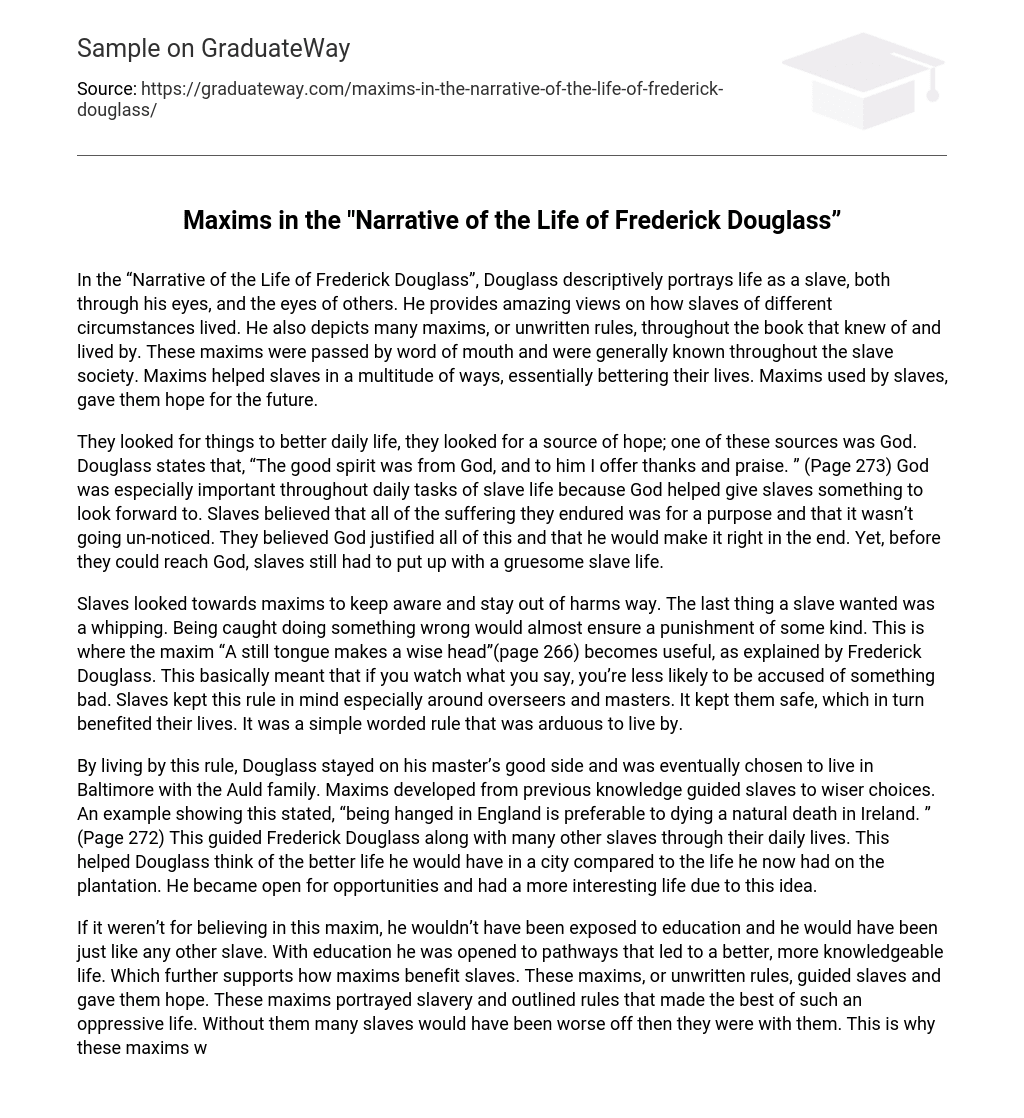In the “Narrative of the Life of Frederick Douglass”, Douglass descriptively portrays life as a slave, both through his eyes, and the eyes of others. He provides amazing views on how slaves of different circumstances lived. He also depicts many maxims, or unwritten rules, throughout the book that knew of and lived by. These maxims were passed by word of mouth and were generally known throughout the slave society. Maxims helped slaves in a multitude of ways, essentially bettering their lives. Maxims used by slaves, gave them hope for the future.
They looked for things to better daily life, they looked for a source of hope; one of these sources was God. Douglass states that, “The good spirit was from God, and to him I offer thanks and praise. ” (Page 273) God was especially important throughout daily tasks of slave life because God helped give slaves something to look forward to. Slaves believed that all of the suffering they endured was for a purpose and that it wasn’t going un-noticed. They believed God justified all of this and that he would make it right in the end. Yet, before they could reach God, slaves still had to put up with a gruesome slave life.
Slaves looked towards maxims to keep aware and stay out of harms way. The last thing a slave wanted was a whipping. Being caught doing something wrong would almost ensure a punishment of some kind. This is where the maxim “A still tongue makes a wise head”(page 266) becomes useful, as explained by Frederick Douglass. This basically meant that if you watch what you say, you’re less likely to be accused of something bad. Slaves kept this rule in mind especially around overseers and masters. It kept them safe, which in turn benefited their lives. It was a simple worded rule that was arduous to live by.
By living by this rule, Douglass stayed on his master’s good side and was eventually chosen to live in Baltimore with the Auld family. Maxims developed from previous knowledge guided slaves to wiser choices. An example showing this stated, “being hanged in England is preferable to dying a natural death in Ireland. ” (Page 272) This guided Frederick Douglass along with many other slaves through their daily lives. This helped Douglass think of the better life he would have in a city compared to the life he now had on the plantation. He became open for opportunities and had a more interesting life due to this idea.
If it weren’t for believing in this maxim, he wouldn’t have been exposed to education and he would have been just like any other slave. With education he was opened to pathways that led to a better, more knowledgeable life. Which further supports how maxims benefit slaves. These maxims, or unwritten rules, guided slaves and gave them hope. These maxims portrayed slavery and outlined rules that made the best of such an oppressive life. Without them many slaves would have been worse off then they were with them. This is why these maxims were beneficial to daily slave life and slavery as a whole.





